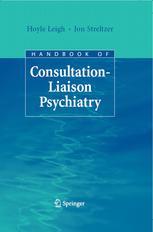

Most ebook files are in PDF format, so you can easily read them using various software such as Foxit Reader or directly on the Google Chrome browser.
Some ebook files are released by publishers in other formats such as .awz, .mobi, .epub, .fb2, etc. You may need to install specific software to read these formats on mobile/PC, such as Calibre.
Please read the tutorial at this link: https://ebookbell.com/faq
We offer FREE conversion to the popular formats you request; however, this may take some time. Therefore, right after payment, please email us, and we will try to provide the service as quickly as possible.
For some exceptional file formats or broken links (if any), please refrain from opening any disputes. Instead, email us first, and we will try to assist within a maximum of 6 hours.
EbookBell Team

5.0
40 reviewsLinking the medical and psychological components of a patient’s condition, facilitating communication among patients, doctors, families, and hospital systems, consultation-liaison work has emerged as one of the most challenging of psychiatric skills. The Handbook of Consultation-Liaison Psychiatry takes a practical biopsychosocial approach to helping readers navigate this complex terrain.
The authors and their 17 colleagues emphasize the flexibility CL practice demands, the team setting it entails, and the clinical and empathy skills it requires. Early chapters trace the roots of psychosomatic medicine and consultation-liaison psychiatry, the nature of psychiatric diagnosis, and explain the clinical, educational, administrative, and research functions of CL psychiatry, and walk the reader through the basics of psychiatric consultation. They discuss common reasons for psychiatric consultation and the immediate management of urgent conditions such as agitation and suicidal behavior. From there, chapters feature case vignettes, practice guidelines, and specific information on topics as varied as postpartum depression, withdrawal symptoms, and chronic pain. And in keeping with this real-world orientation, contributors identify cultural issues, analyze ethical concerns, and flag the potential conflicts of interest that practitioners must recognize and prevent for successful practice.
Highlights of the coverage:
With this depth and scope, the Handbook offers a wealth of insights and ideas to psychiatrists, primary care physicians, psychiatric and primary care residents, medical students, behavioral medicine specialists, and others who are interested in managing emotional aspects of medical patients, and providing biopsychosocial care. Its accessibility makes it an outstanding text for advanced students in health psychology and behavioral medicine, and a reliable reference for professionals in related health fields.
Visit:
http://blogs.springer.com/consultation-liaison to discuss the topic with the Editors!